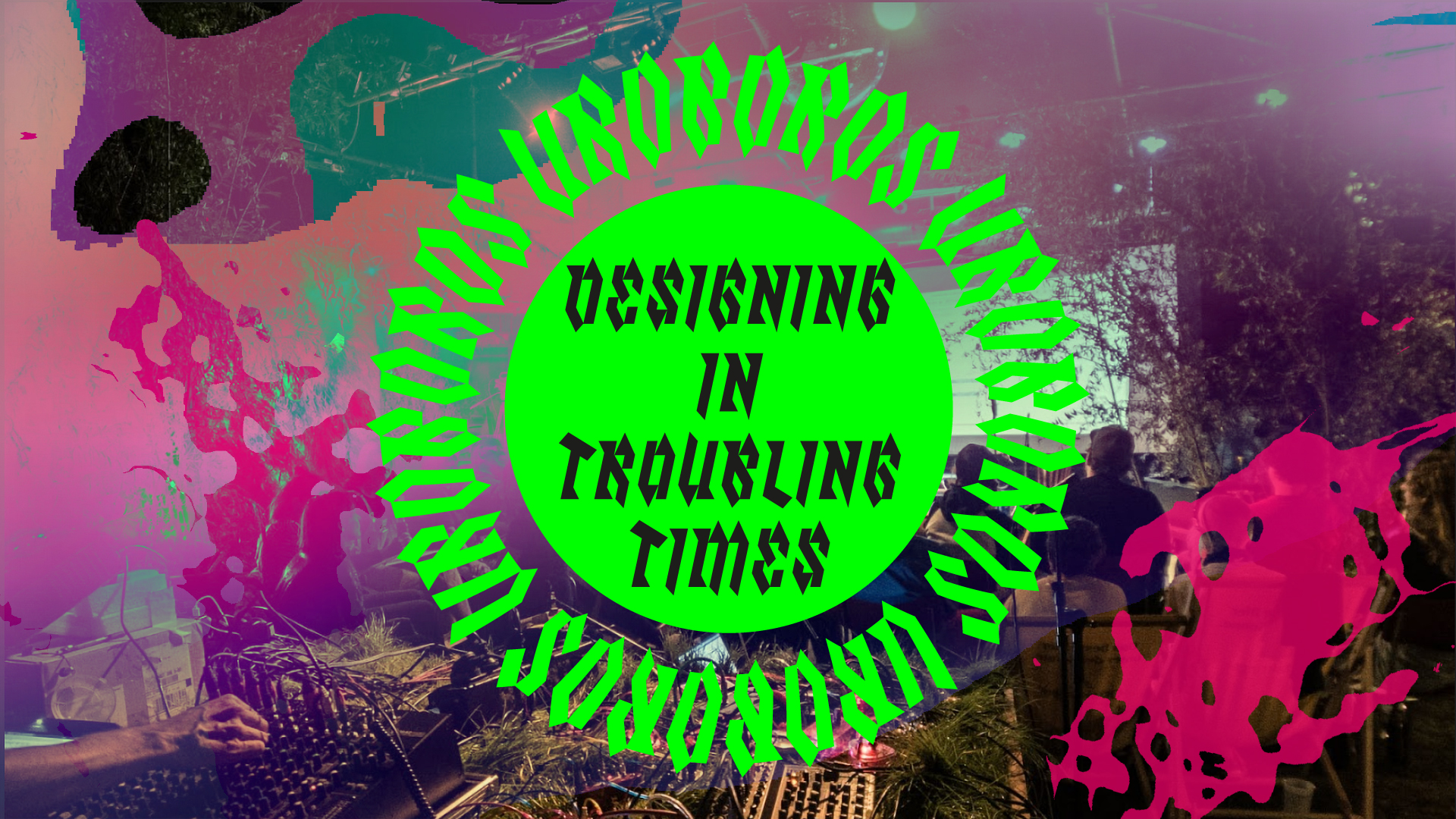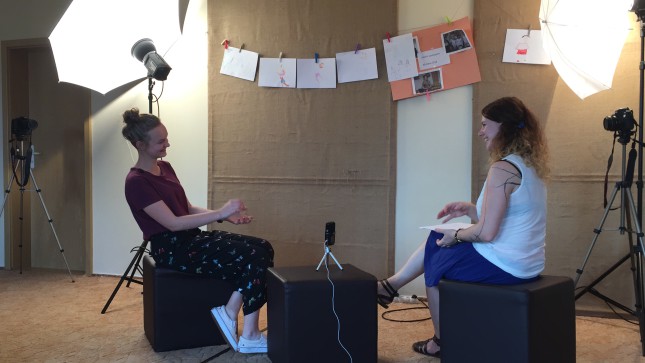Meet Ruth Guerra, an MA Future Design graduate
By Larissa Petryca on 10 July 2024 10:07
Can you describe what led you to pursue an MA in Future Design at PCU?
I was a digital marketing professional with over six years of experience. I initially decided to get my Master's degree because I wanted to be more involved in the development of products and services.
I was accepted into other design programs in Europe, but I ultimately chose PCU because I liked the flexibility of the Future Design programme. It's made for working professionals, so it allowed me to work while I studied. I feel like most graduate design programmes are very specific in disciplines (product design, graphic design, etc). I wasn't quite sure yet what I wanted to specialise in, so I needed a programme that was broad enough to allow for exploration in different areas within design. I had some indirect experience with design managing creative teams at startups, but it was always under the framework of digital marketing. I would have never called myself a designer before the MA programme.
I think the most impactful aspect of my time at PCU was learning that design can be many different things. My biggest strengths are my soft skills like critical thinking and foresight. I learned that I can use those skills in design research — and those are the skills that make better products, services, and experiences.

How did you find the programme?
I liked the program a lot — particularly the flexibility! The lecturers are very supportive in exploring areas that you are passionate about, while challenging you to think beyond your biases and assumptions. It's really designed for independent learners; people who are self motivated to work independently on projects and are open to feedback. I was also pleasantly surprised how much the global aspect of the university influenced my studies.
I'm from the USA, and it was nice to be able to get perspectives from people with different backgrounds and identities. This is incredibly important when designing solutions for global problems.
How did the programme influence your professional development and career trajectory?
At the start of the programme, I wasn't sure which area of design I wanted to focus on. The programme encouraged me to explore unknown territories like speculative design and transition design. At the end of the programme, I became more confident in calling myself a design researcher — exploring and developing alternative methodologies that include diverse communities in the design process.
How did the advice of lecturers and assignments help you to develop?
I liked that my lecturers all had different experiences; some were researchers and others were entrepreneurs. It gave me a well-rounded perspective of design from both the academic and business approaches. The assignments were similar in that sense, as we were expected to create real-world solutions but always back it up with research. This allowed me to consider not only the viability of a solution within a particular market but the impact it might have on our society and the environment.
One story I can share is when I created a novel participatory design tool for a first semester project. It was a game that enabled the co-creation of alternative concepts for planetary care. My lecturer for the module, Lenka Hámošová, encouraged me to apply the tool as a workshop for conferences. To my surprise, I was accepted into conferences in the UK, Spain, and Finland, where I facilitated workshops with designers and academics from all over the world. In my second year, another PCU lecturer invited me to run the workshop with her BA students. Since then I have continued to run co-design workshops and further develop the tool to be marketed for cross-disciplinary teams.
Has your work situation changed after completing the programme?
Yes! After graduating, I interned for an innovations team at the United Nations Development Programme (UNDP). It was surreal because I’vealways been interested in international relations, and it was an eye opener that I could use my design thinking skills for international development. Now, because of that experience, I work as a consultant for social innovation organisations. I get to collaborate with global teams on a range of programs — such as regenerative futures — leveraging research and design for systems change.
What advice would you give to someone contemplating a Master's degree? What key benefits do you believe come with making that decision?
I think a graduate degree is useful for two reasons: one is if you’re looking to specialise in a specific area in your field, and two is if you’re looking to transition into a new field. For me, I was always interested in design and wanted to explore where I fit in that industry. Going back to school made sense because it allowed me to freely learn and experiment with my interests. I worked on strengthening my skills as a designer and researcher, while getting ready to enter the job market.
My advice for someone deciding if they should pursue a Master’s degree is to ask yourself: why do you want to go back to university? Is it because you want to go all in on a specific career? Or is it because you want to explore an interest for a future career path? Whatever the case may be, once you’re clear on what you want out of it, it will also be clear which programme is right for you. And once you’re in, make sure you’re building a portfolio that has relevance to the jobs you’ll eventually be applying for. In the design world, it’s not always the training that will land you the job but the quality of work and thought put into your portfolio.
To learn more about MA Future Design, visit the MA Future Design programme page here. For insights into Ruth's work, read her interview on Canvas Rebel.
- School of Art, Design & Media (433)
- Student Life (331)
- School of Business, Management & Technology (268)
- Global Engagement (141)
- Research & Creative Practice (95)
- Seminars & Workshops (73)
- Master Speakers Series (70)
- Exhibitions (69)
- New Students (64)
- Academic Partners (58)
- Alumni (58)
- Living Futures (52)
- Graduation (47)
- Visiting Artist Lecture Series (44)
- Conferences (37)
- Digital Campus (22)
- Professional Partners (14)
- Study Exchanges (14)
- University News (11)
- Industry Network (9)
- School of Education (9)
- Media Innovation Technology Series (8)
- Press Release (8)
- Erasmus+ (3)
- Student Societies (1)
- May 2025 (2)
- April 2025 (4)
- February 2025 (4)
- January 2025 (5)
- December 2024 (2)
- November 2024 (1)
- October 2024 (2)
- September 2024 (6)
- August 2024 (4)
- July 2024 (4)
- May 2024 (1)
- April 2024 (1)
- March 2024 (2)
- February 2024 (1)
- January 2024 (3)
- December 2023 (1)
- November 2023 (3)
- October 2023 (1)
- September 2023 (1)
- August 2023 (1)
- July 2023 (2)
- June 2023 (1)
- April 2023 (2)
- March 2023 (2)
- February 2023 (3)
- January 2023 (2)
- December 2022 (5)
- November 2022 (3)
- September 2022 (4)
- August 2022 (2)
- July 2022 (2)
- June 2022 (1)
- May 2022 (7)
- April 2022 (5)
- March 2022 (5)
- February 2022 (3)
- January 2022 (1)
- December 2021 (7)
- November 2021 (8)
- October 2021 (6)
- September 2021 (5)
- August 2021 (8)
- July 2021 (3)
- June 2021 (3)
- May 2021 (2)
- April 2021 (5)
- March 2021 (3)
- February 2021 (4)
- January 2021 (2)
- December 2020 (5)
- November 2020 (8)
- October 2020 (2)
- September 2020 (3)
- August 2020 (1)
- July 2020 (3)
- June 2020 (4)
- May 2020 (7)
- April 2020 (6)
- March 2020 (5)
- February 2020 (2)
- January 2020 (7)
- December 2019 (5)
- November 2019 (12)
- October 2019 (9)
- September 2019 (6)
- July 2019 (1)
- June 2019 (1)
- May 2019 (14)
- April 2019 (10)
- March 2019 (7)
- February 2019 (16)
- January 2019 (8)
- December 2018 (2)
- November 2018 (6)
- October 2018 (10)
- September 2018 (3)
- August 2018 (2)
- July 2018 (3)
- June 2018 (10)
- May 2018 (12)
- April 2018 (9)
- March 2018 (5)
- February 2018 (3)
- January 2018 (8)
- December 2017 (4)
- November 2017 (9)
- October 2017 (7)
- September 2017 (3)
- July 2017 (4)
- June 2017 (3)
- May 2017 (8)
- April 2017 (8)
- March 2017 (13)
- February 2017 (11)
- January 2017 (6)
- December 2016 (3)
- November 2016 (18)
- October 2016 (9)
- September 2016 (8)
- August 2016 (4)
- July 2016 (9)
- June 2016 (3)
- May 2016 (6)
- April 2016 (5)
- March 2016 (78)
- February 2016 (4)
- January 2016 (4)
- December 2015 (6)
- November 2015 (9)
- October 2015 (5)
- September 2015 (6)
- August 2015 (1)
- July 2015 (4)
- June 2015 (1)
- May 2015 (3)
- April 2015 (11)
- March 2015 (6)
- February 2015 (6)
- January 2015 (6)
- December 2014 (1)
- November 2014 (17)
- October 2014 (4)
- September 2014 (8)
- August 2014 (5)
- July 2014 (1)
- June 2014 (10)
- May 2014 (25)
- April 2014 (32)
- March 2014 (53)
- February 2014 (25)
- January 2014 (10)
- December 2013 (10)
- October 2013 (1)
- September 2013 (1)
- July 2013 (4)
- June 2013 (2)
- March 2013 (2)
- February 2013 (74)
- January 2013 (6)
- December 2012 (13)
- November 2012 (3)
- October 2012 (5)
- September 2012 (156)
- July 2012 (1)
- November 2011 (1)
- November 2010 (1)
- November 2009 (1)
- November 2008 (4)
- September 2008 (1)
- July 2008 (1)
- June 2008 (4)
- May 2008 (2)
- April 2008 (3)
- March 2008 (2)
- February 2008 (1)
- December 2007 (1)
- October 2007 (1)
- August 2007 (1)
- July 2007 (1)
- June 2007 (4)
- May 2007 (1)
- April 2007 (2)
- March 2007 (3)
- January 2007 (1)
- November 2006 (1)
- December 2005 (1)
- November 2005 (1)
- October 2005 (1)
- August 2005 (1)
- May 2005 (1)
You May Also Like
These Related Articles

Uroboros Online Design-Art Festival

Prague City University showed me what I could do with Design

